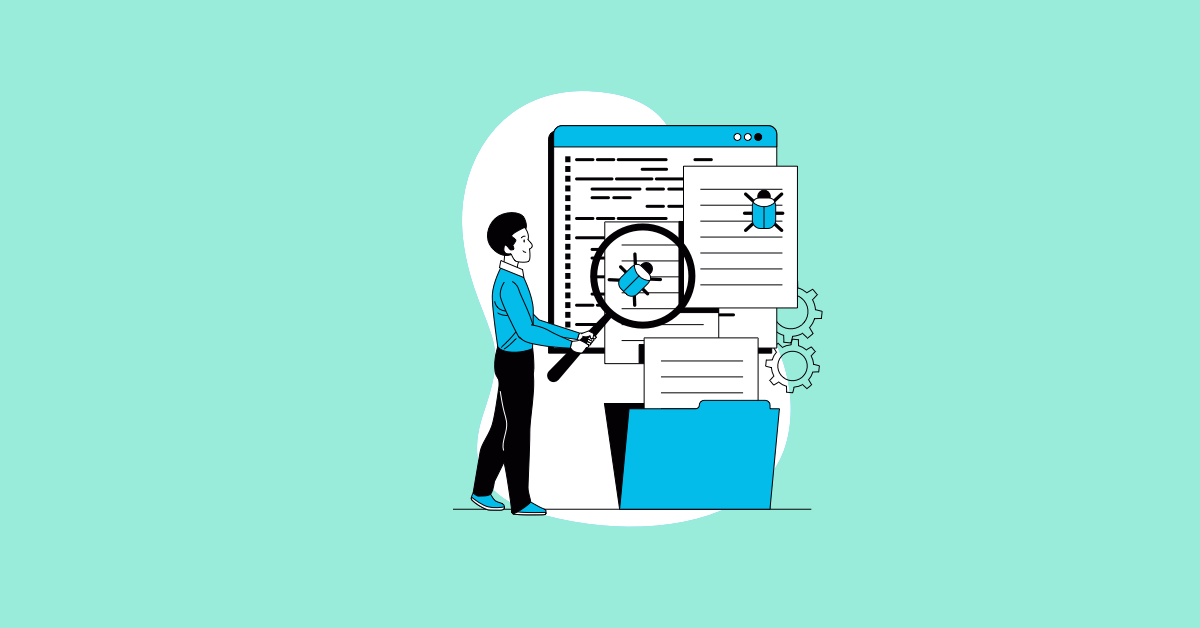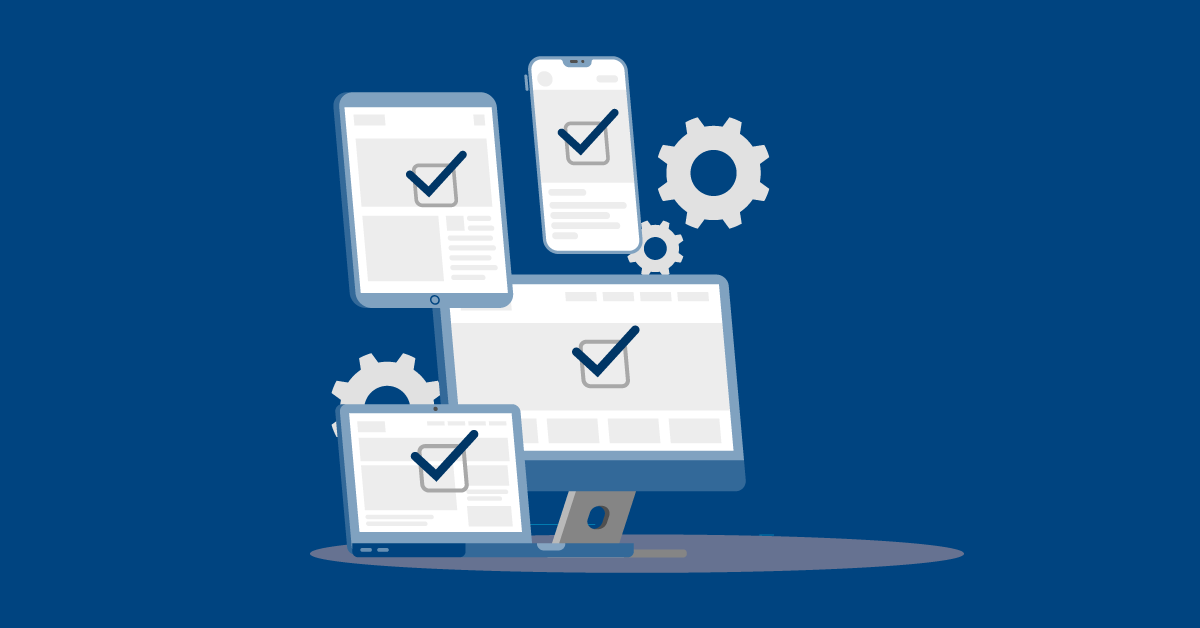Ready to take your software testing career to the next level? Automation testing is a hot skill, and the right automation testing certification can open doors to exciting new opportunities. This guide is your roadmap to understanding the value of automation testing certifications, exploring popular options, and preparing for exam success. We'll cover everything from prerequisites and costs to career benefits and how to stay updated in this fast-paced field. Whether you're aiming for a promotion, a higher salary, or simply want to validate your skills, this guide will help you make informed decisions about your automation testing certification journey.
Key Takeaways
- Formal certifications in automation testing showcase your expertise and open doors to exciting career opportunities. Earning a recognized certification validates your skills in automated testing tools and methodologies, increasing your earning potential and making you a sought-after candidate in a growing field.
- Thorough preparation is essential for success in your certification journey. Combine self-study using reputable resources with structured training programs or bootcamps for a comprehensive learning experience. Regular practice tests and mock exams will build confidence and familiarize you with the exam format.
- Continuous learning is key to maintaining your competitive edge in automation testing. Stay updated on industry trends, pursue continuing education opportunities, and engage with the testing community to keep your skills sharp and your certification current. Aligning your certification choices with your career goals and work environment ensures long-term career growth and relevance.
What is Automation Testing Certification?
Automation testing is transforming software development, and earning a relevant certification can validate your skills and boost your career. It’s a popular field, but it’s common for people to have misconceptions about automation testing. This section clarifies what automation testing certification is, why it matters, and the different certification types available.
Definition and Importance
Automation testing certifications formally recognize your expertise in using automated tools and techniques to test software. These certifications demonstrate your ability to design, develop, and execute automated tests, analyze results, and identify defects. They confirm your understanding of automation testing frameworks, methodologies, and best practices. Holding a certification can significantly increase your earning potential, with salaries for certified automation testers often exceeding $100,000 per year. As more companies adopt automated testing processes to improve software quality and reduce testing time, certifications are becoming increasingly important. Understanding common misconceptions about automation testing is crucial for choosing the right certification path.
Types of Certifications
Several certifications cater to different aspects of automation testing. Some focus on specific tools, like Selenium, while others emphasize broader testing methodologies. The ISTQB Test Automation Engineer (CT-TAE) certification is a widely recognized option for a comprehensive understanding of automation testing principles. Other popular choices include the Certified Software Automation Tester (CSAT) by GAQM, which offers both foundation and advanced levels, and ICAgile certifications, which focus on automation within Agile environments. Choosing the right certification depends on your career goals and the specific skills you want to develop. Many professionals start with a foundational certification like the ISTQB Foundation Level before pursuing more specialized ones.
Top Automation Testing Certifications
Picking the right automation testing certification can feel overwhelming with so many options. This section breaks down some popular choices to help you find the best fit for your career goals. We'll look at what each certification covers, who it's designed for, and why it might be a good choice for you.
ISTQB Test Automation Engineer (CT-TAE)
The ISTQB Test Automation Engineer certification shows you know your stuff when it comes to modern testing tools and Agile methodologies. It's a great addition if you already hold the ISTQB Test Automation Strategy (TAS) certification. The CT-TAE covers a broad range of skills, from understanding the purpose of test automation to reporting test data. This makes it a solid option for testers looking to specialize in automation.
Certified Software Automation Tester (CSAT)
Offered by GAQM, the CSAT comes in two levels: Foundation and Advanced. The Foundation Level covers the basics of software test automation, making it a good starting point. If you're already familiar with the fundamentals, the Advanced Level explores more complex topics and hands-on exercises. This tiered approach lets you choose the certification that aligns with your current experience.
Selenium Certification
Selenium is a widely-used tool in automation testing, so a Selenium certification can be incredibly valuable. Various training providers offer certifications focused on practical Selenium applications. These certifications typically cover writing test scripts and using Selenium components. If you plan to work extensively with Selenium, this certification is worth exploring.
TOSCA Certified Automation Specialist
For those specializing in the TOSCA test automation tool, the TOSCA Certified Automation Specialist certification is a natural fit. Offered by Tricentis, this certification emphasizes model-based test automation and continuous testing practices. It's a great way to demonstrate your TOSCA expertise.
ICAgile Certifications
If you're working in an Agile environment, the ICAgile Agile Test Automation certification (ICP-ATA) is worth considering. This certification focuses on designing and implementing end-to-end test automation within Agile and continuous integration environments. It's a valuable credential for testers working in fast-paced Agile development teams.
Prerequisites and Requirements
So, you’re interested in getting a professional certification in automation testing? Fantastic! It’s a smart move to advance your career and validate your skills in this growing field. But before you jump in, it’s helpful to understand the prerequisites and what you’ll need to succeed. This section breaks down the essential knowledge, experience, and technical skills you should have before pursuing an automation testing certification.
Foundational Knowledge
Most automation testing certifications build upon core software testing principles. A solid understanding of software development lifecycles (SDLC), testing methodologies (like Agile and Waterfall), and different testing types (such as unit, integration, and system testing) is crucial. For many advanced certifications, like the ISTQB Test Automation Engineer (CT-TAE), the ISTQB Foundation Level certification is a common prerequisite. Think of it as building a house—you need a strong foundation before you can add the specialized details.
Work Experience Expectations
While foundational knowledge is key, practical experience is equally valuable. Many certifications, including the CT-TAE, require hands-on software testing experience. This typically ranges from one to three years, depending on the specific certification. This requirement ensures that certified professionals possess not only theoretical knowledge but also the practical skills to apply it in real-world scenarios. Check the specific requirements for the certification you’re interested in to make sure you meet the work experience criteria.
Required Technical Skills
Automation testing involves more than just clicking buttons. It requires a good grasp of programming concepts, familiarity with automation tools and frameworks, and the ability to design and execute automated test scripts. Understanding how to set up and maintain test environments, analyze test results, and troubleshoot issues is also essential. Technical skills are a significant factor in successful automation. Building these skills often involves continuous learning and working with different tools and technologies. Don’t be intimidated by the technical aspects—with the right resources and dedication, you can develop the necessary skills to excel in automation testing.
Cost Breakdown and ROI
Getting certified in automation testing does require an upfront investment. Let's break down the costs and see how they balance against the potential return.
Exam Fees
Exam fees will depend on which certification you choose. The ISTQB® Certified Tester - Test Automation Engineer, for instance, costs $311.54, with additional options like a printed certificate or a retake. Planning for these costs upfront will help you prepare.
Study Materials and Training Costs
In addition to the exam fee, you'll probably want to invest in study materials and maybe a training course. While free online resources exist, a structured course can make a big difference in how much you learn. For cost-effective training, look into programs that use open-source tools like Selenium. Axess Technology discusses the advantages of using these tools to manage costs.
Potential Salary Increases
Here's the exciting part: the return on your investment. Automation testing is a valuable skill, and certifications can significantly impact your earning potential. With the software testing market expected to expand, the demand for skilled professionals will likely keep growing. This makes getting certified a smart move for career growth and higher pay.
Career Benefits and Advancement Opportunities
So, you’re considering getting certified in automation testing? Smart move. It's a field with a ton of potential, and the right certification can really open doors. Let's explore how it can boost your career.
Job Role Progression
Getting certified isn't just about checking a box; it's about showing you're serious about your career. An automation testing certification demonstrates commitment and a deep understanding of testing methodologies. This can fast-track your growth, leading to more responsibility and promotions. Think senior test engineer, test architect, or even QA manager—roles that often require proven expertise. A certification validates your skills and makes you a stronger candidate for these advanced positions.
Industry Recognition
The value of a recognized certification goes beyond your current company. Credentials like the ISTQB Test Automation Engineer are often globally recognized. This means your skills are portable and valuable no matter where you work. This industry recognition boosts your credibility and makes you a sought-after candidate.
Skill Validation
Beyond recognition, certifications offer concrete validation of your skills. They prove you have the knowledge and practical abilities to design, implement, and maintain automated tests, a huge advantage in a constantly evolving field. Plus, certifications can significantly impact your earning potential. Salaries for certified automation testers often reflect the high demand, ranging from $74,000 to $124,000 per year. A certification acts as a testament to your expertise, increasing your job prospects and making you a more attractive candidate.
Comparing Certification Content and Focus
When choosing an automation testing certification, understanding the differences in content and focus is key. Some certifications emphasize testing methodologies, while others concentrate on specific tools. Considering industry relevance and demand is also crucial for maximizing your career prospects.
Methodology-based Certifications
These certifications focus on broad testing principles and methodologies, like Agile, essential for any automation tester. The ISTQB Test Automation Engineer certification, for example, demonstrates competency in modern testing tools and Agile methodologies. This approach ensures a well-rounded skill set applicable across various projects. Certifications like ICP-ATA and the Agile Tester certification from ISTQB are also valuable for building a strong foundation in Agile principles.
Tool-specific Certifications
Other certifications focus on specific automation tools like Selenium, Appium, or UFT. These certifications offer deep dives into particular frameworks. While they might not cover broader testing methodologies as comprehensively, they provide specialized expertise.
Industry Relevance and Demand
The software testing market is booming, and the demand for skilled software testers is high, making certification a worthwhile investment. Earning a recognized certification can significantly enhance your career prospects. Whether you choose a methodology-based or tool-specific certification, ensure it aligns with current industry trends to maximize your return on investment.
Prepare for Your Certification Exam
Getting ready for an automation testing certification takes planning and dedicated effort. Here’s how to structure your preparation, covering self-study, training programs, and practice tests.
Self-Study Materials
Self-study is a flexible starting point, especially if you thrive learning independently. Explore reputable resources like textbooks, online tutorials, and documentation for specific tools like Selenium. Managing the initial investment in tools and infrastructure is key. Building a solid foundation with accessible resources can significantly impact your progress.
Training Programs and Bootcamps
For a more structured learning experience, consider a training program or bootcamp. These provide expert-led instruction, hands-on practice, and a curriculum aligned with key exam topics. These programs can be a smart investment to accelerate your learning and gain a competitive advantage.
Practice Exams and Mock Tests
Regularly test your knowledge with practice exams and mock tests as you study. This helps pinpoint areas for improvement and familiarize yourself with the exam format. Software Testing Material notes the importance of practical skill development and suggests working with open-source tools like Selenium and Cypress. Combining hands-on practice with these tools and regular mock exams builds confidence and enhances your exam-day performance.
Exam Formats and Passing Criteria
Knowing what to expect on exam day is key to avoiding surprises and stress. This section covers the format, question types, scoring, and retake policies for the Automation Testing Certification exam, focusing primarily on the widely recognized ISTQB Test Automation Engineer certification—a great starting point for many.
Question Types and Assessment Methods
The ISTQB Test Automation Engineer exam uses multiple-choice questions to assess both your theoretical knowledge and practical skills. This format evaluates your understanding of core concepts and how you'd apply them in real-world scenarios. Expect questions covering various automation frameworks, testing techniques, and best practices.
Scoring Systems
You'll need a minimum score of 65% to pass the ISTQB exam. This benchmark ensures certified professionals have a solid grasp of automation testing principles. While aiming for the minimum is sufficient, a higher score demonstrates deeper understanding and can boost your job prospects.
Retake Policies
If you don't pass your first attempt, the ISTQB offers a 2TRY option, providing one free retake within 90 days of your initial exam. Use this second chance to review the material, pinpoint areas for improvement, and retake the exam with greater confidence.
Maintain and Renew Your Certification
So, you’ve earned your automation testing certification—congratulations! But like any professional skill, automation testing requires ongoing learning. The field changes quickly, and maintaining your certification demonstrates your commitment to staying at the cutting edge. This section covers how to keep your certification current and your skills sharp.
Continuing Education Requirements
Most certifications aren’t “one and done.” They often require continuing education to stay valid. This might involve earning continuing education credits (CEUs) through activities like attending webinars, completing online courses, or participating in industry conferences. These requirements ensure you’re keeping up with the latest advancements and best practices in automation testing. Staying certified also keeps you competitive.
Recertification Processes
Many certifications require recertification after a certain period, often every two to three years. This usually involves passing an updated exam that reflects current industry standards and practices. Pay close attention to your certifying body’s guidelines and deadlines. For example, iSQI’s ISTQB® Software Tester Certification requires staying informed about exam updates and their sunset dates to ensure you’re prepared for recertification. Knowing these timelines helps you avoid any last-minute scrambling.
Stay Updated in the Field
Beyond formal recertification requirements, continuous learning is essential in the ever-evolving world of automation testing. Regularly explore new tools, techniques, and trends. Investing in training on relevant scripting languages and automation tools is crucial for staying ahead of the curve. Engaging with the testing community through online forums, attending workshops, and participating in discussions can also provide valuable insights and keep your skills sharp. Remember, continuous learning isn’t just about maintaining your certification; it’s about staying valuable and relevant in your field.
Choose the Right Certification for Your Career
So, you’re ready to level up your career with an automation testing certification? Great! Now, how do you pick the right one? With so many options, it can feel overwhelming. Don't worry, it doesn't have to be. Let's break down how to find the perfect fit for your career goals.
Assess Your Goals and Current Skills
First, think about where you want to be in your career. Are you aiming for a senior automation engineer role? Or are you a manual tester looking to transition into automation? Your current skills also play a big role. Some certifications are designed for beginners, like the Certified Software Automation Tester (CSAT), while others, such as the ISTQB Test Automation Engineer (CT-TAE), cater to more experienced professionals. Choosing a certification that aligns with both your current skill set and career aspirations is key. It's like choosing the right running shoes; you need the right fit for your pace and distance. A good starting point is to check out resources like this guide to software testing certifications to get a feel for different options.
Evaluate Industry Trends
The software testing landscape is constantly evolving. Staying on top of industry trends is crucial for making informed decisions about your career. Automation testing is a hot skill, and the market is projected to grow significantly. Earning a relevant automation testing certification can significantly improve your job prospects and earning potential. Look at job postings for roles you're interested in. What certifications do they mention? What tools are in demand? Understanding these trends will help you choose a certification that makes you a desirable candidate.
Align with Your Work Environment
Your current work environment also matters. Does your company use specific automation tools? If so, getting certified in those tools can be incredibly valuable. Talk to your manager or team lead about your professional development goals. They can offer insights into which certifications align with your team's needs and the company's tech stack. Investing in the right training and development can help you build a robust and efficient automation framework that delivers real value to your organization. By aligning your certification choices with your work environment, you'll be better equipped to contribute to your team's success and advance your career within your company.
Frequently Asked Questions
Why is automation testing certification important?
In the fast-paced world of software development, demonstrating expertise is key. An automation testing certification validates your skills, signaling to employers that you possess the knowledge and practical abilities to excel in this field. It's a powerful tool for career advancement, opening doors to new opportunities and higher earning potential. Plus, as companies increasingly rely on automation, certified professionals are in high demand.
Which automation testing certification is right for me?
The "best" certification depends on your individual goals and experience. If you're new to automation testing, a foundational certification like the ISTQB Foundation Level or the CSAT is a great starting point. For those with some experience under their belt, more specialized certifications like the ISTQB Test Automation Engineer or tool-specific certifications (Selenium, Appium) might be a better fit. Consider your current skills, career aspirations, and the tools used in your work environment when making your decision.
How can I prepare for my automation testing certification exam?
Effective preparation involves a mix of self-study, structured learning, and practice. Utilize resources like textbooks, online tutorials, and tool documentation. Consider enrolling in a training course or bootcamp for a more guided approach. Most importantly, take practice exams to assess your knowledge and identify areas for improvement. Hands-on experience with automation tools is invaluable, so try applying what you learn to real-world projects or scenarios.
What are the costs associated with getting certified?
Costs vary depending on the specific certification. Exam fees are a primary expense, often ranging from a few hundred to several hundred dollars. Factor in the cost of study materials, training courses, or bootcamps, which can add to the overall investment. However, view this as an investment in your career, as certification can significantly boost your earning potential in the long run.
How do I maintain my automation testing certification?
Most certifications require ongoing effort to stay current. This often involves earning continuing education credits through activities like attending webinars, completing online courses, or participating in industry conferences. Some certifications also require recertification after a certain period, typically involving passing an updated exam. Staying informed about the latest trends and advancements in automation testing is crucial for maintaining your certification and remaining competitive in the field.












